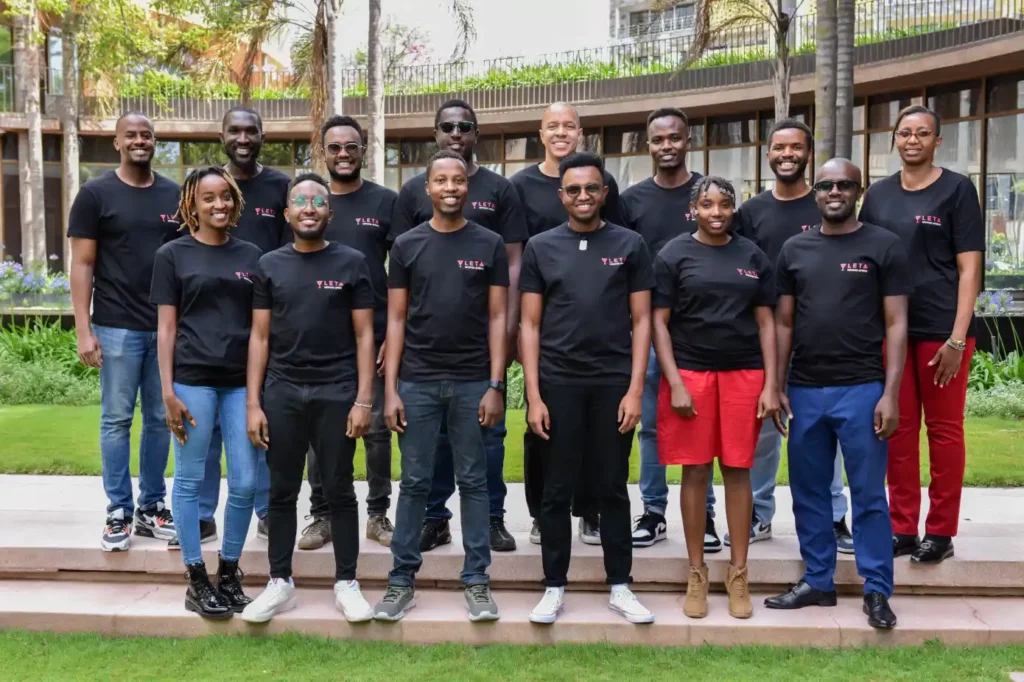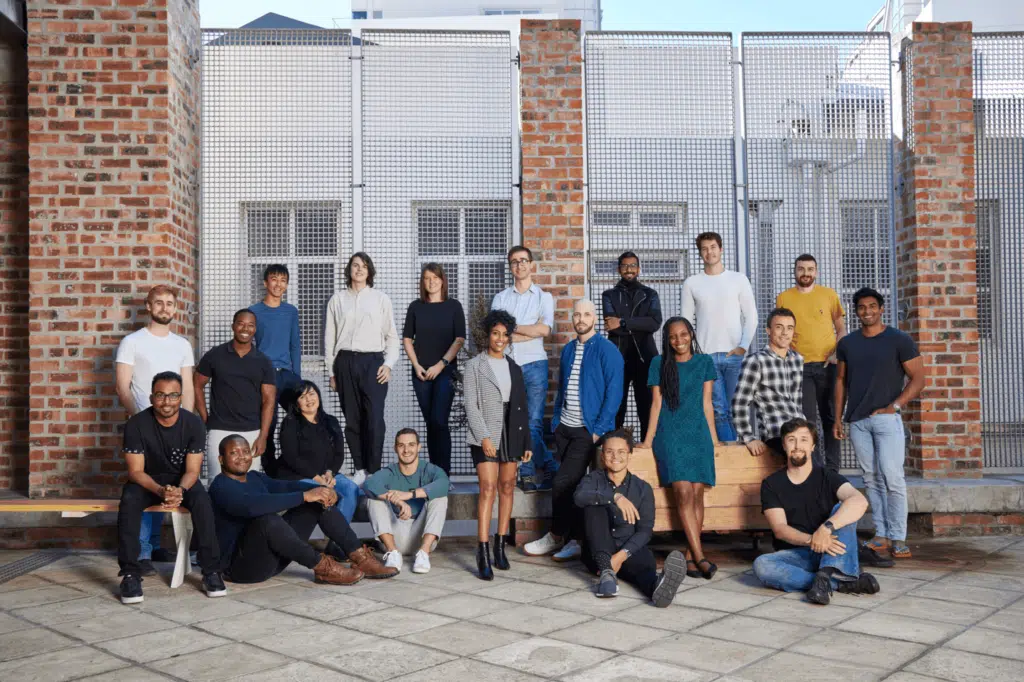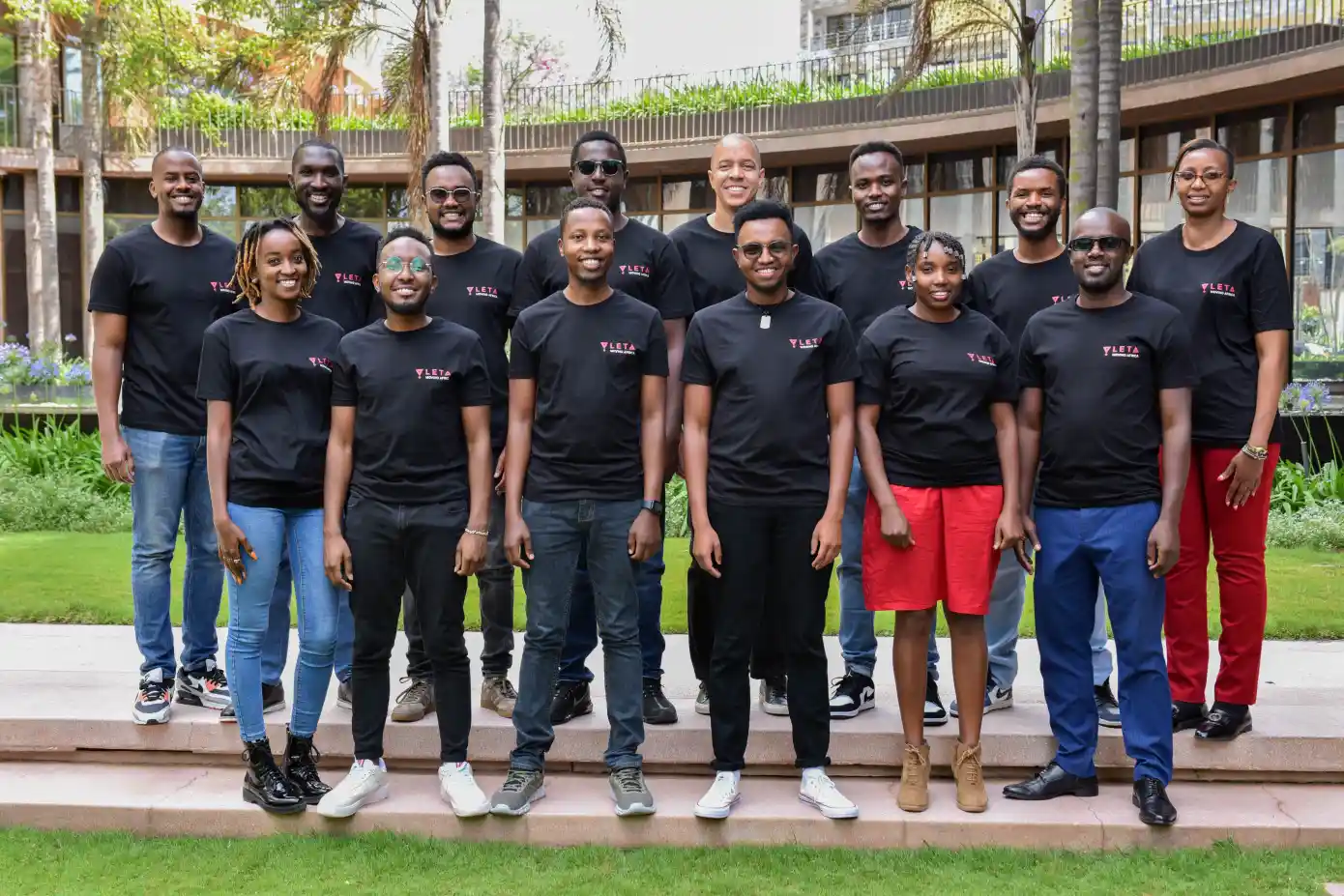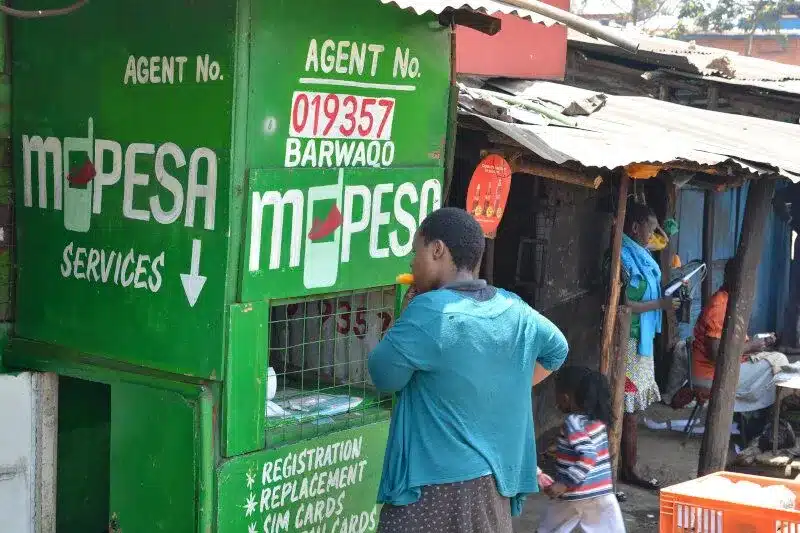Ciao,
Victoria from Techpoint here,
Here’s what I’ve got for you today:
- Kenyan startup Leta expands to Ghana
- Why Feexet is fixing what most startups ignore
- Stitch now clears card payments like a bank
Kenyan startup Leta expands to Ghana

A Kenyan startup is taking on Africa’s messy logistics scene, and it just landed in Ghana, per TechCabal. Leta, a software company that helps businesses optimise fleet operations and deliveries with AI, has officially launched in Accra. It’s their seventh market, following Kenya, Uganda, Nigeria, Zimbabwe, Zambia, and Mauritius, and comes after a $5 million seed round raised in March 2025.
Founded in 2021 by Nick Joshi, Leta builds a logistics “operating system” that helps firms route vehicles efficiently, track shipments in real time, and cut transport costs, sometimes slashing costs by up to 70% of goods sold. Big names like KFC, East African Breweries, Wells Fargo Couriers, and Ghana’s Simbisa Brands are already on board. In Accra, the startup is already active with Simbisa Brands, which has 600 outlets across 11 countries.
This expansion follows the March funding that totalled $5 million, led by Speedinvest and joined by Google’s Africa Investment Fund and Equator VC, bringing Leta’s total raise to over $8 million. The capital will be used to level up their AI platform and reach more businesses looking to solve delivery headaches with smart, software-first tools.
These results aren’t just talk: Leta claims a 5x revenue growth since their 2022 pre-seed, processed 4.5 million deliveries, moved 150,000 tonnes of goods, and managed fleets of over 7,400 vehicles across Africa. They’re also exploring embedded finance tools like fuel cards and asset financing to expand their value proposition.
Their secret sauce? Leta plugs right into businesses’ ERP and POS systems, crunches live data and adjusts delivery routes on the fly, considering traffic, weather, and even police checkpoints. Meaning, no more guesswork and full control over fleet operations from start to finish.
As logistics costs remain painfully high across the continent, Leta bets that software beats adding more trucks. With strong backing and an expanding footprint, the startup is positioning itself as Africa’s go-to logistics tech partner, one intelligent delivery at a time.

Victoria Fakiya – Senior Writer
Techpoint Digest
Stop struggling to find your tech career path
Discover in-demand tech skills and build a standout portfolio in this FREE 5-day email course
Why Feexet is fixing what most startups ignore

In a world where startups chase buzzwords and billion-dollar valuations, one Nigerian startup is doing the gritty work most tech companies ignore. Think picking up trash, skilling the jobless, and proving that real impact isn’t always sexy.
Meet Feexet, the social enterprise on a mission to fix the overlooked mess in Nigeria, literally. Founded by Christopher Balogun, who grew up in Ajegunle, Lagos, where pollution was as common as potholes, the startup is using tech and community action to tackle issues like pollution and unemployment. “I’ve lost friends to things that shouldn’t have happened, preventable things like malaria. That’s why I started Feexet,” Balogun says.
Feexet’s Clean Sweep project lets residents report trash-filled areas through an app. The team then inspects the site, rallies volunteers, teaches locals about sustainability, and organises cleanups. So far? Over 8,000kg of waste cleared, two illegal dumps shut down, and eight communities reached. From a handful of volunteers to a growing force of 200+ young people, the mission is catching fire.
But the work doesn’t stop at waste. Through its second project, Techquity, Feexet is helping Nigerians break into tech. More than 300 young people trained in web development, UI/UX design, and other digital skills. Over 100 projects built for small businesses and nonprofits. It’s tech with heart and results.
Want to see what real tech-for-good looks like? Check out Sarah’s full story on Techpoint Africa.
Stitch now clears card payments like a bank

South African fintech startup Stitch is on a roll. Just six months after snapping up ExiPay, the company has now acquired Efficacy Payments, a move that puts it squarely in the ring with traditional banks and legacy card processors. With this deal, Stitch can now offer direct card acquiring services to merchants as a Designated Clearing System Participant (DCSP), a rare and tightly regulated status in South Africa’s payments space.
What does this mean in simple terms? Stitch no longer has to rely on middlemen to process card payments. Whether it’s online or in-store, the company can now handle card transactions end-to-end from swipe to settlement. This not only makes payments faster and smoother for merchants but also cuts costs by eliminating third-party bottlenecks.
The acquisition builds on momentum from January 2025, when Stitch bought ExiPay and rebranded it to “Stitch In-Person Payments,” their entry into physical retail transactions. Now, by adding Efficacy’s infrastructure, Stitch has completed the payments loop, giving merchants a unified platform that works across all sales channels.
“Card processing is critical in South Africa, but it’s far from perfect,” said Stitch president and co-founder, Junaid Dadan. “With this integration, we’re not just plugging a gap, we’re overhauling the experience with better conversion rates, smarter tech, and lower fees.” Merchants will also get more control with tools for real-time tracking and custom reconciliation.
Efficacy, which started in 2016 and became the second fintech to receive DCSP status in 2021, brings serious technical firepower to the table. Its integration means Stitch now controls the entire pipeline — gateway, switch, and acquirer — giving enterprise clients like telcos and retail giants more reliability and less drama with payments.
This move is powered by Stitch’s strong capital position. The startup raised $55 million in Series B funding in April 2025, bringing total funds raised to $107 million. Stitch is not here to play small; it’s positioning itself as the infrastructure layer for Africa’s growing payments market.
In case you missed it
- Starlink, FiberOne, others lose over 18,000 customers in 6 months
What I’m watching and reading
- Demis Hassabis On The Future of Work in the Age of AI
- AI Agents, Clearly Explained
Opportunities
- Pitch Friday is tomorrow, Friday, July 11, 2025. Register here to attend.
- Lagos Business School is hiring. Apply here.
- Kuda is looking to fill 37 positions. Apply here.
- Jumia is hiring a Chief Marketing Officer (Pipeline). Apply here.
- Sun King is looking for a Workforce Planning Analyst, Nigeria. Apply here.
- Building a startup can feel isolating, but with Equity Merchants CommunityConnect, you can network with fellow founders, experts, and investors, gaining valuable insights and exclusive resources to help you grow your business. Click here to join.
- Help us make Techpoint better for you! Your feedback shapes what comes next (your responses may potentially save my job. A bit dramatic, but still). It will only take 30 seconds to tell us what works and what doesn’t. Fill it here.
- To pitch your startup or product to a live audience, check out this link.
- Have any fresh products you’d like us to start selling? Check out this link here.
- Follow Techpoint Africa’s WhatsApp channel to stay on top of the latest trends and news in the African tech space here.
Have a superb Thursday!
Victoria Fakiya for Techpoint Africa.











